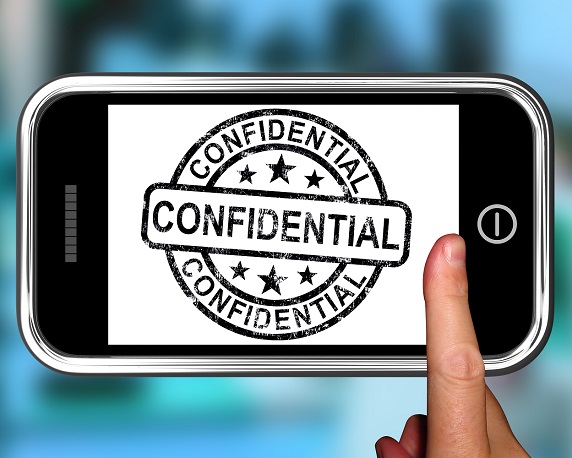Maintaining the confidences of one’s clients is part of the oath that every attorney takes when admitted to practice law. We, the disability and bankruptcy lawyers at RRG Law, consider this one of our highest ethical duties. However, unintentionally, many clients, of RGG Law or other law firms, end up compromising their own confidential communications with their attorneys. Once such communications are shared with a third party, the legal protections against the use of such information are moot.
RGG Law Tips on Modern Technology Use
This is particularly a problem with the advent of much of the modern telecommunications technology and the intense use of social media that has become so much a part of our daily lives.
Every email or email reply is sent with a disclaimer that use of email technology involves a risk to the confidentiality of the information contained. Apart from hackers, an RGG Law client or attorney could unintentionally redirect an email. Others may have access to the computer terminal or electronic device, such as a cell phone, belonging to a client and read emails that are not password protected. Emails should be used to communicate only limited and urgent information or information which is not of a critical and confidential type to your RGG Law attorney.
We all know that cell phone signals can be intercepted, although encryption technology is supposed to make this less likely. On a more ordinary level, oftentimes when we use our cell phones we may be in public or doing other things while we talk to someone. How often do we or someone we see in public carry on a conversation while fueling a vehicle at a gas station, grocery shopping, waiting at a car wash or standing in line almost anywhere? Everyone around you is privy to at least one side of that conversation, compromising the confidentiality of the communication.
It is important to be mindful of access to cell phones, laptops, tablets and other electronic devices which contain confidential information. Such devices which are lost, stolen or merely left unattended can often give others access to confidential information in emails, text messages, personal calendars, to-do lists, and other correspondences with friends, family, or your RGG Law attorney. At the very least, such devices should be password protected, and care should be taken to keep them secure and under your control at all times.
The Internet Isn’t Confidential
It is a modern life lesson that whatever is on the internet is there for the whole world to see for all time. Care should be taken when posting information on websites, social media pages and so on. This applies to blogs, videos, comments, profiles and anything else others can view or read.More and more often enterprising investigators mine the internet for purposes of legal discovery and information that can be used to your disadvantage. If you post it, you obviously cannot claim the information was confidential.
Truly important information and documents should be shared with your RGG Law attorney in face-to-face meetings when possible, over more secure telephone lines (landlines), or by traditional U.S.mail or a private delivery service (e.g., FedEx or UPS). If you use more advanced technology, such as a facsimile transmission, email, text or even calling from your cell phone, take reasonable precautions that your communication is private and directed to the correct source, and generally be aware there is an element of risk you are choosing to accept.

